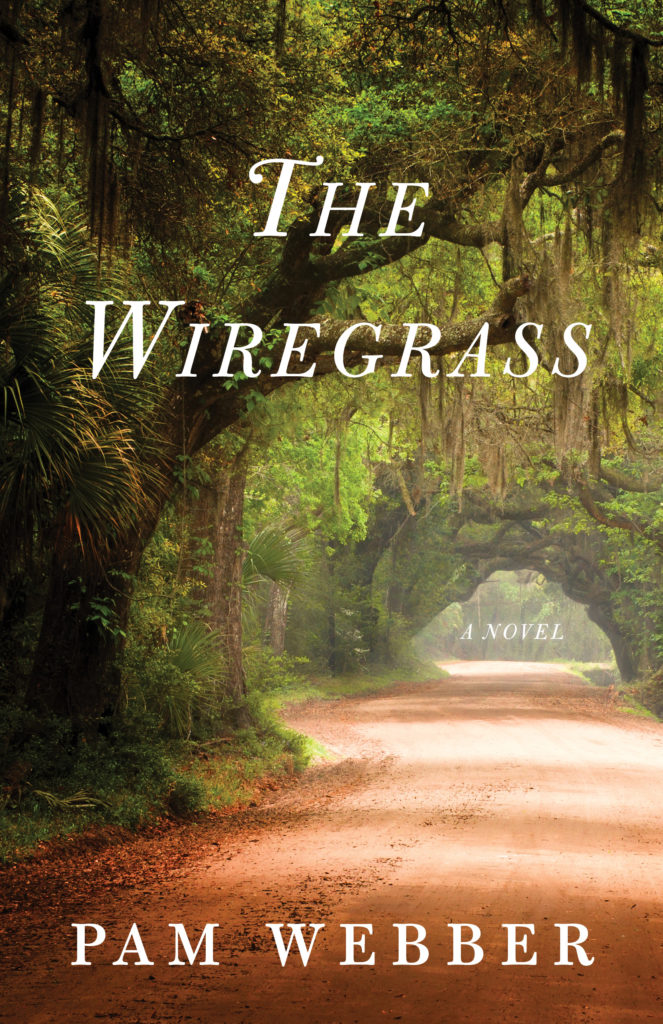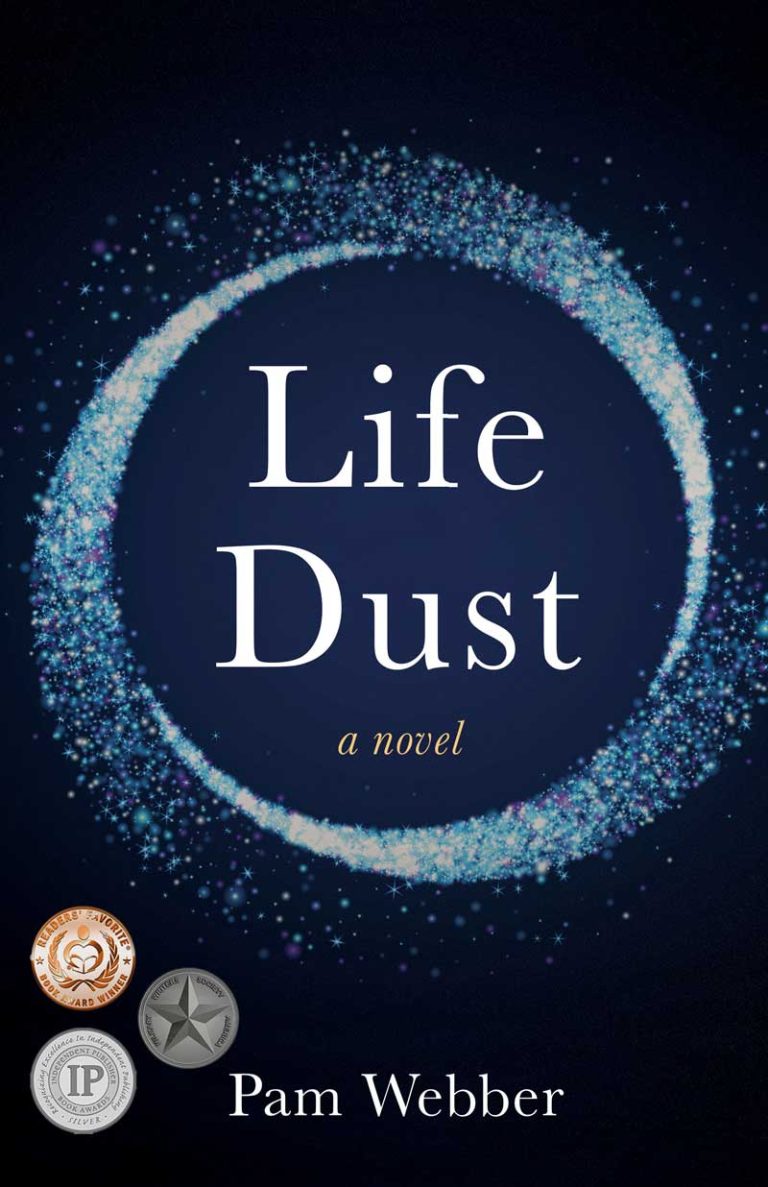The Wiregrass, Excerpt
The overstuffed suitcase was too heavy to carry, so I bumped it down the stone steps and pushed it across the damp grass toward the driveway, placing it in line with the others being loaded into the trunk of the blue Oldsmobile. The sun would be up in a couple of hours to dry things out, but for now the damp, the dark, and the hum of hundreds of invisible crickets made me tingle with excitement. School was finally out, and we were leaving on vacation, or at least what my family called vacation. In just a little while we would begin the long drive south down Route 29, across Virginia, the Carolinas, part of Georgia, and finally deep into Alabama, where narrow roads were bordered by strips of red dirt, kudzu, and drop-offs that ended in deep, blackwater bogs. By late tonight we would arrive in the tiny South Alabama town of Crystal Springs, where my momma was born and raised and where she met and married my soldier daddy. Crystal Springs was also where I had spent every summer since I could remember remembering.
Impatience to leave began long before school was out. My summer clothes had been packed for weeks and unpacked almost daily as the weather warmed and I needed items in my limited wardrobe. But come June, that case was stuffed, snapped, and ready to go. If the trip went according to plan, we would stop just long enough to fill the car with gasoline, take a bathroom break, and grab a bite at one of the many country diners along the way.
Earlier, when the 4:00 a.m. alarm sounded, the smell of percolating coffee had reached the upstairs of our little house, which meant Momma and Daddy were already sipping their first cups. My fifteen-year-old sister, Cindy, who for some reason was nicknamed Sam, and my six-year-old brother, Carl, also known as Li’l Bit, and I had dressed quickly and headed to the kitchen for the inevitable prune juice. Momma, as did most of her Southern family, had a concerning preoccupation with the well-being of her bowels and the bowels of everyone around her. This preoccupation usually resulted in all of us getting a daily dose of prune juice so we would “stay reg’lar.” The only time we didn’t have to swallow the nasty stuff was in the summer, when we were staying with Ain’t Pitty in Crystal Springs.
“Drink what you want when you’re thirsty, and let nature take its course,” she’d say.
Since this morning was special, Momma also let us have some coffee. Li’l Bit’s had to be saucer-cooled, but Sam and I were allowed a regular cup. Once we were dropped off in Crystal Springs for the summer, this would change, too. Ain’t Pitty let us have coffee every day if we wanted it. The rules were just different down there.
With bed pillows in tow, we climbed in the car as Daddy slammed the trunk closed. Our travel ritual, or at least the one Momma and Daddy liked, was that Sam, Li’l Bit, and I would go back to sleep so they would have some undisturbed travel time before stopping for breakfast. For the most part their plan worked, except for me. My name is Nettie, and up to this point in my just-turned-fourteen years, summers in Crystal Springs were what I lived for, and I was not about to sleep through the drive to get there. So, as Sam and Li’l Bit settled down, I stuffed my pillow tight against the car window, said good-bye to my hometown of Amherst, and watched as the miles began to slip by and the stars grew dimmer in the lightening sky.
Thinking we were all asleep, Momma and Daddy began to whisper about Crystal Springs, family members who lived there, those who did not, and those who would make the annual summer pilgrimage back. Momma was worried about the health of her mother, Susie “Granny” Campbell, and came close to whining about the weaknesses and irritating habits of her five sisters and two brothers and their assorted offspring. I figured these folks were probably whining about us the same way. Ain’t Pitty said that’s just what families do.
At the beginning of summer, when everyone arrived at the home place, it was obvious the adults loved each other. It was also just as obvious after a few days why most of them lived apart and why some came back just long enough to say hello and drop their kids off for the summer. This ritual would repeat when summer was over and it was time to pick us up.
As the sun climbed higher, I started counting the familiar landmarks signaling we were getting closer to Crystal Springs. By breakfast we would cross the little falls of the Dan River into the mountains of North Carolina. By early afternoon we would be in the flatlands of South Carolina and Georgia, places where you could look in all directions and see a whole lot of nothing. By late afternoon we would pass the gold dome of the Georgia capital, and by suppertime the green military vehicles from Fort Benning would fill the road and we would be crossing the painted rocks of the Chattahoochee River into Alabama.
For Li’l Bit and me, it was the military trucks we passed that were interesting, but for Sam, the jeeps filled with young soldiers were what had her sitting up higher and paying closer attention to what was outside her window. Sam didn’t say a word about these easy-on-the-eyes fellows. She liked boys, so did I, just not the same way. To me they were ballplayers, friends, or annoying twits.
“Just wait,” Sam warned. “That’ll change.”
As we rolled deeper into Alabama, cities gave way to scattered small towns and plowed fields that fit together like blocks on a quilt—some wide, some tall, some with tree-lined hedges, and some with rainwashed gullies separating them. In the distance, farm tractors followed by floating clouds of dirt moved back and forth across large fields that stretched to the sky. Some of the large fields gave way to smaller, hodgepodge ones belonging to dirt farmers and sharecroppers who did most of their plowing and picking by animal and by hand. Occasionally, we would see these folks sitting on crates and stumps under shade trees or taking a swim in nearby creeks, most likely trying to cool off after working long hours in the heat.
By day’s end, the sun would be setting on dozens of small, pine-filled islands dotting Lake Eufaula and we could watch the water turn as red-yellow-orange as the sky, an impressive sight even for a fourteen-year-old. According to the billboard at the entrance, the lake was thirty miles long, had seven hundred miles of shoreline, and was the bass-fishing capital of the world. But more important, it marked our entry into the region of the Deep South known as the Wiregrass.

